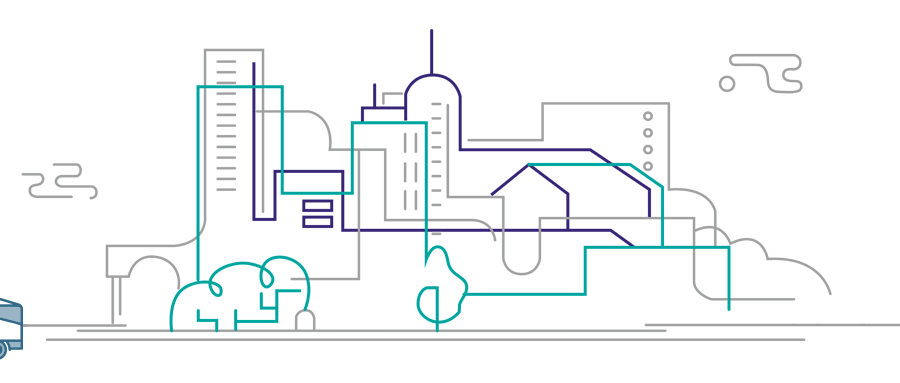
In the 1990s, two things fascinated me the most: the Internet and logistics.
The Internet, a newcomer to China, was a cool yet expensive thing at that time. The Institute of High Energy Physics of the Chinese Academy of Sciences naturally became my haunt for free Internet access. I had a feeling that this thing would change our lives. When I started my business for the first time, I applied to register my company with the name Beijing Yingtainaite (YTNT) Technology Development Center (YTNT is pronounced like Internet in Chinese). I was kind of surprised when the application was approved. Maybe the reviewer had no idea about the connection between YTNT and the Internet.
Meanwhile, logistics revealed the traditional side of our society. When people were enjoying surfing the Internet, goods were still delivered in somewhat ancient ways. China's reform and opening-up have brought rapid economic growth and evolving technologies. New items like cellular phones, Windows, automated production lines, and pop songs from Hong Kong and Taiwan were seen everywhere, but means of logistics were still quite primitive. Back then there were no convenient doorstep delivery or same-day delivery services that we are familiar with today. If you, in Beijing, received a case of imported red wine from an out-of-town relative, you had to go to a freight yard in the outer suburb, find your case in a messy corner under heavy sunlight, and carry it back home, all by yourself. You had to be very lucky to find that your wine still tasted good.
These things have to be changed. Yet neither could we change the reality with a rallying cry nor pursue growth simply with manpower. I want to make logistics smarter with the help of technologies. I believe that the Internet would bring dramatic changes to traditional logistics.
A market economy cannot do without commodities that rely on manufacturing, consumption, and logistics. Logistics, a major essential service that underpins the modern economy, has become a massive industry in China. With the rapid development of e-commerce in the past decade, China has witnessed an array of outstanding express companies, with the efficiency of express shipping at the world's most advanced level and the scale more than the rest of the world put together. Yet express shipping is but a small part of logistics in a boarder sense. Logistics is not limited to professional service providers, but also found in every aspect of the national economy, including coal, chemicals, cement, bulk commodities, food, and automobiles. In most areas of logistics, the situation remains bleak. As China develops into a manufacturing giant with fast annual GDP growth, the logistics industry is troubled by extensive management and poor efficiency, with many long-standing problems like overloaded trucks, fatigue driving, and careless operations of loading and unloading.
The quality of logistics may seem insignificant, but is actually closely related to every one of us. The money we pay for clothes, drinks, and rents partly goes to the logistics industry. In China, the share of logistics cost in the final price of goods stands at above 30%, while the figure in developed countries is merely 10-15%. If we could improve logistics efficiency by 10%, we would help Chinese people save about 3% in consumption, contributing to an annual saving of one trillion yuan to be spent on more important things. If we could avoid truck overloading and reduce the risk of collision, we would better protect goods, trucks, and roads, saving the lives of truckers and ensuring their family happiness.
This is where G7 devotes itself. We want to create better IoT-powered tools and work with our partners in all sectors to deliver better logistics services that facilitate our social and economic development.
Thankfully, I am accompanied by great companions along the way, including ambitious Sherry, Julian, Jielong, as well as outstanding partners from all walks of life. As a workforce that encompasses different cultural experiences, backgrounds, and thinking styles, we are always honest with each other and pursue personal breakthroughs while looking at the big picture. That is what brings us together, making G7 what it is today. Our first product is nothing but a platform that displays the location and mileage of trucks on PC. Despite the humble beginning, now we have built the world's largest IoT platform that covers millions of trucks. Every innovative breakthrough that seems trivial in the beginning will eventually accumulate into noticeable changes. Every one of you will witness the changes on the large screen when you walk into the office for the first time.
Welcome aboard. Let's rock the future!
Zhai Xuehun
November 2019
Related Articles
